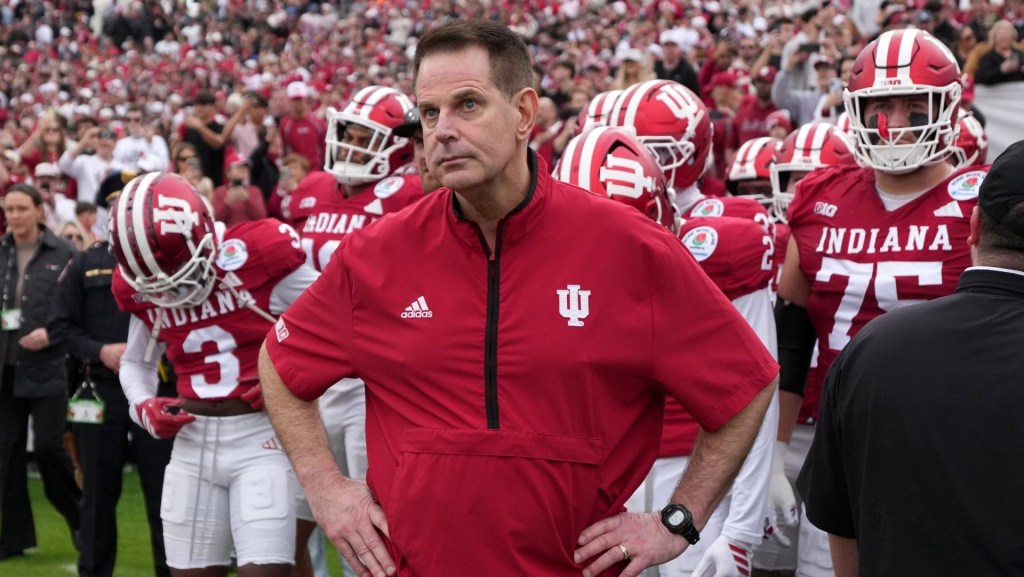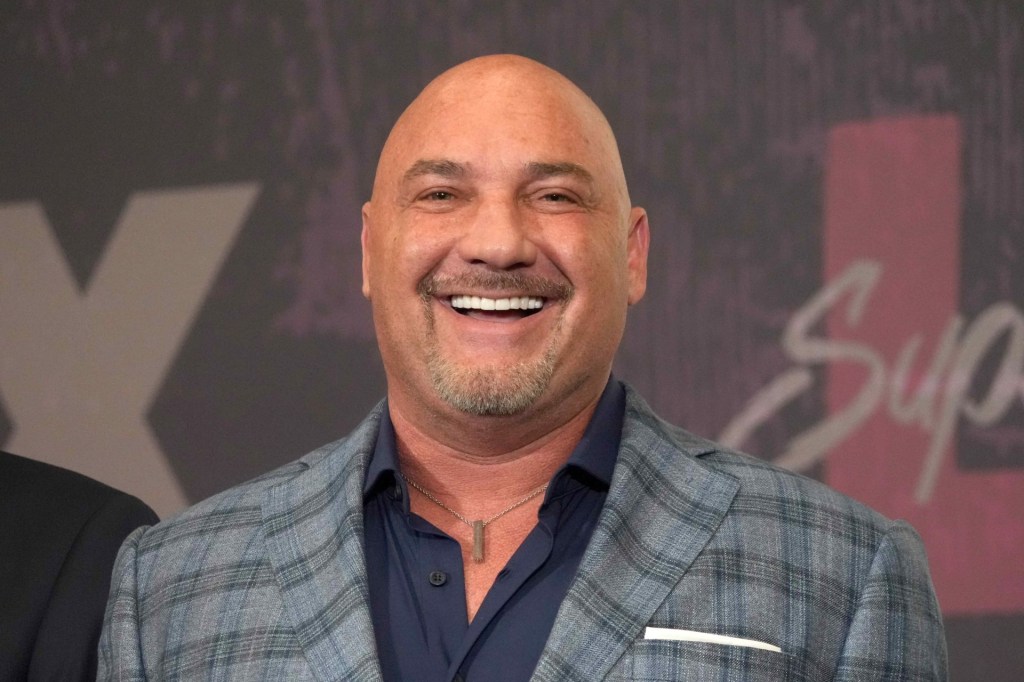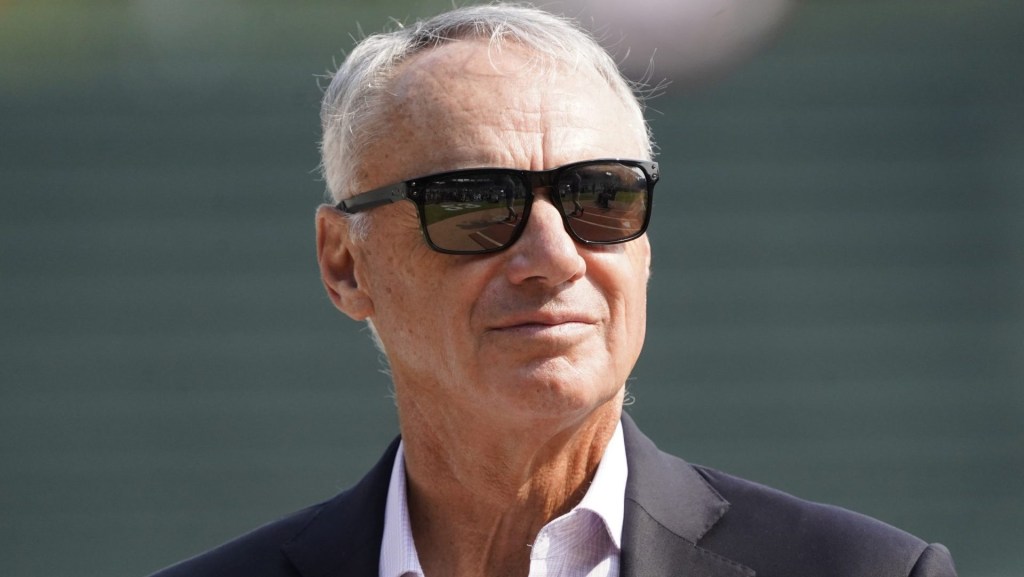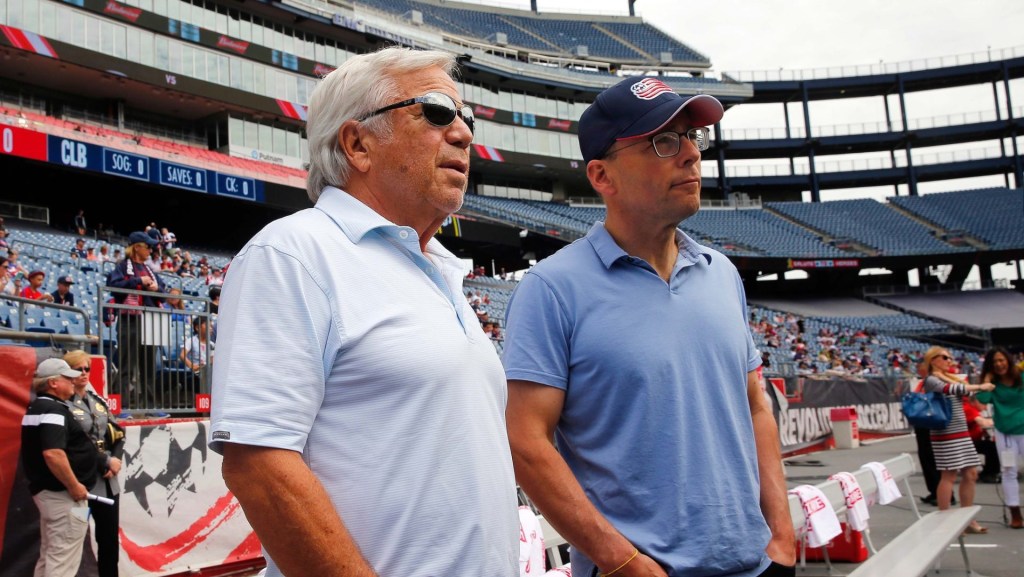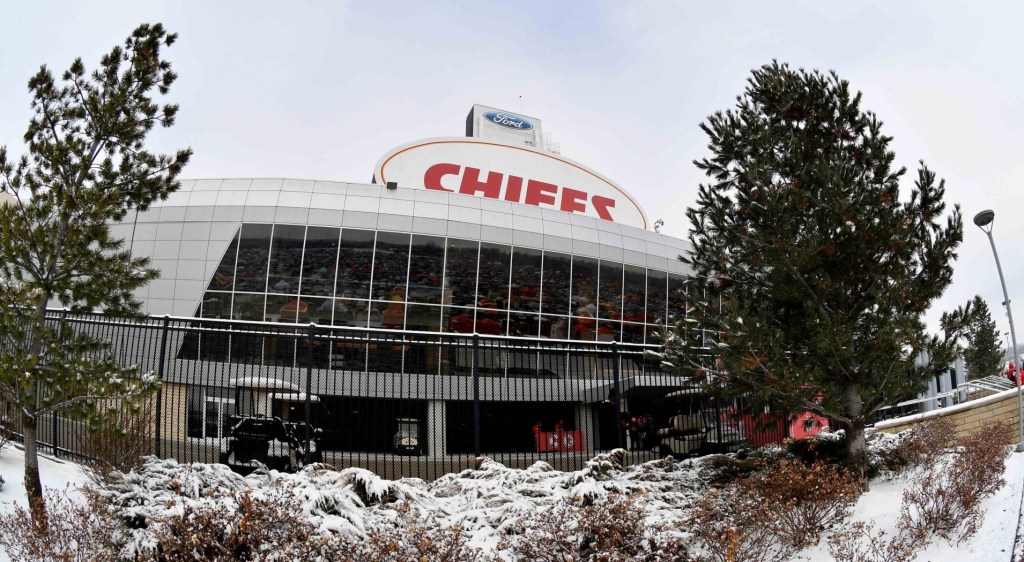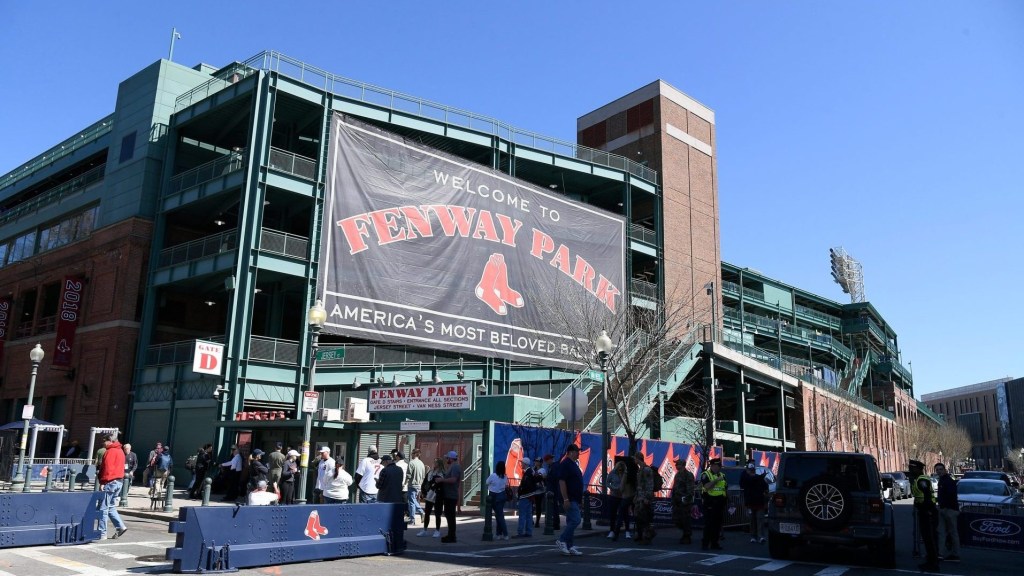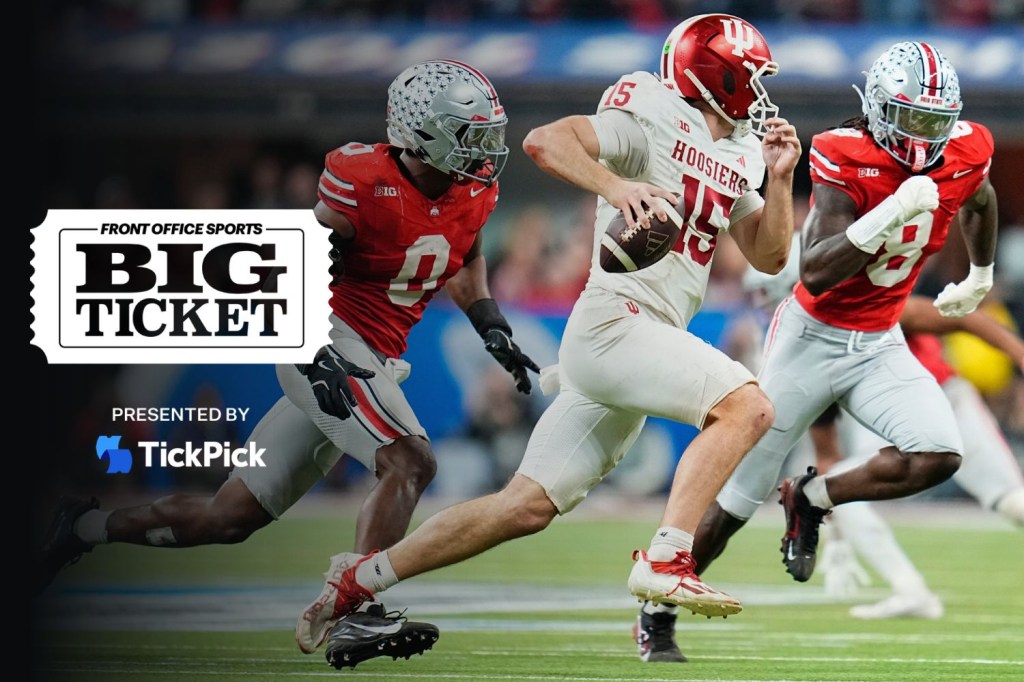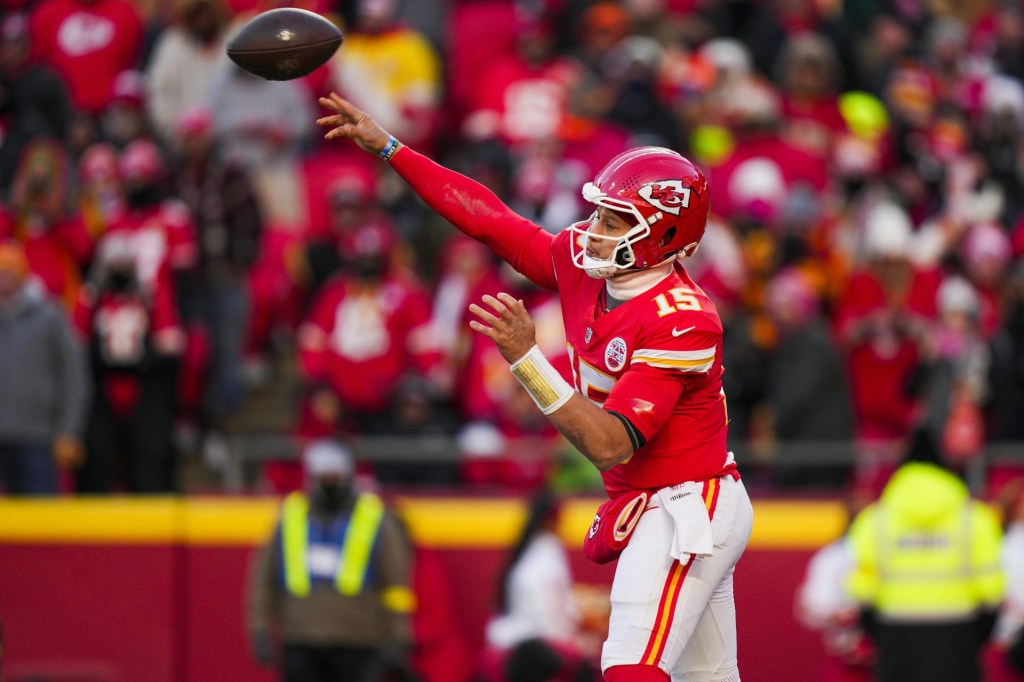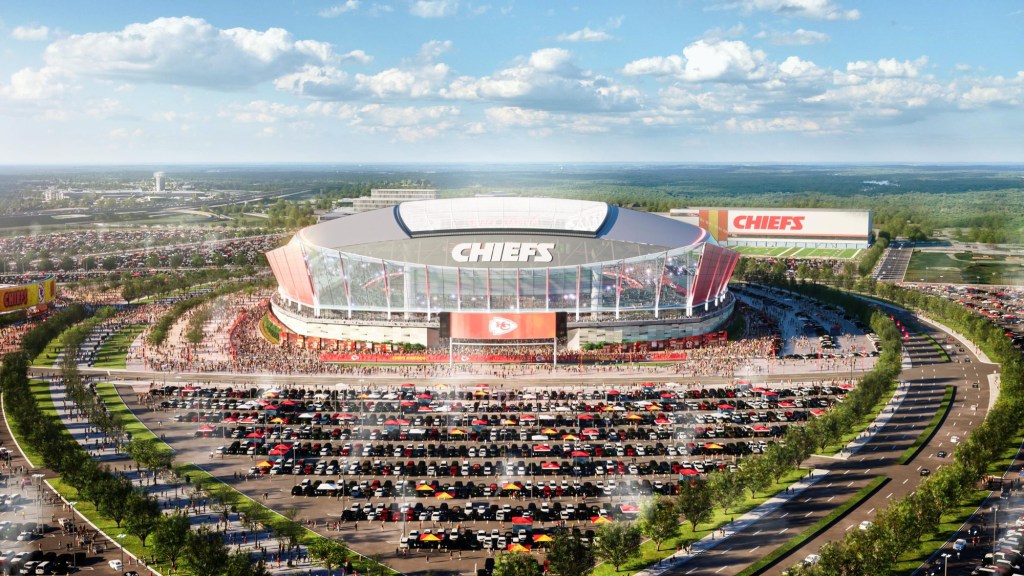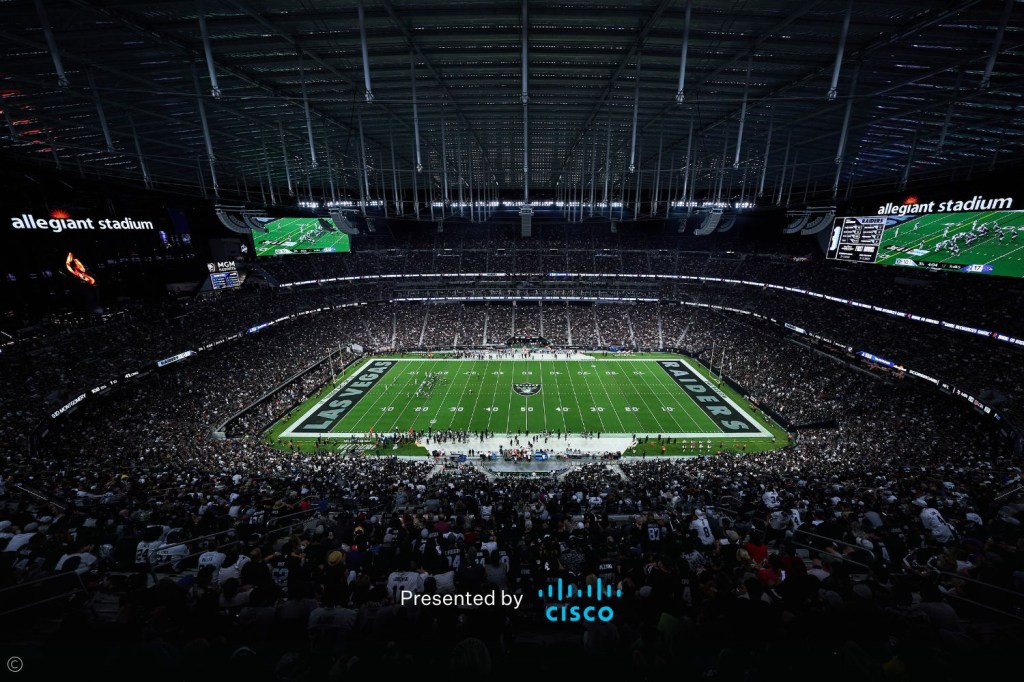There is an expensive and complicated situation playing out around sports venues in Kansas City, and, in a weird way, Patrick Mahomes (above, second from left) is connected to all of them.
Beyond his full-time job as quarterback of the Chiefs, the two-time NFL MVP has minority ownership stakes in the Royals and K.C. Current, as part of his portfolio that also includes an investment in Sporting KC and Major League Pickleball. Mahomes joined the MLB team’s ownership group in 2020 and is one of the founders, along with his wife, Brittany Mahomes (above, far left), of the NWSL club that launched in ’21 and is currently atop that league’s standings.
How We Got Here
So, what’s at the heart of the stadium drama? Leaders of the NFL’s back-to-back Super Bowl champions are not-so-subtly threatening to leave Kansas City if they don’t end up getting their desired public funding for renovations to the 51-year-old Arrowhead Stadium. The Royals, in the midst of planning a new $2 billion ballpark, have also put out similar messaging after voters in Jackson County, Mo., nixed a tax proposal for stadium funding that Mahomes and star teammate Travis Kelce openly helped campaign for.
The Current, however, recently announced more development around their historic downtown venue that was privately financed at a cost of $117 million and was the first stadium purpose-built for a pro women’s team. The next phase will see the construction of a mixed-use riverfront district at a cost of at least $200 million in private funds. That entire project is forecast to exceed $800 million—coincidentally the same amount of money that the Port Authority of Kansas City last year approved in bonds to help the Current finance the development.
Public Versus Private
While local officials are involved in both situations, the difference is that the Chiefs and Royals are asking for public money while the Current will simply get a friendlier interest rate on the bonds than they would on a private loan. Sure, the roughly $800 million the Current will be spending is far less than the $2 billion the Chiefs and Royals’ failed tax proposal could have generated. But the NWSL franchise is still getting things done in a way that its local counterparts have not yet been able to.
For the Chiefs and Royals, both have leases at their current homes through early 2031, at which point they could theoretically find new homes—in the greater K.C. area or elsewhere—if they are serious about moving.


